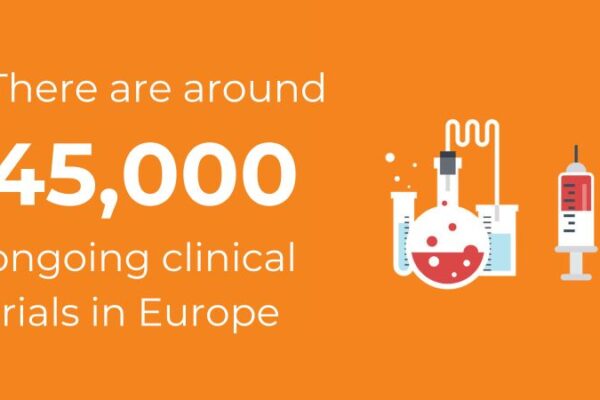
20 May 2024: International Clinical Trials Day
Unlocking opportunities: Clinical Trials and innovative medicines for Greek patients
Athens, May 17, 2024.- On the occasion of International Clinical Trials Day (20 May), the Hellenic Association of Pharmaceutical Companies (SFEE) stresses, once again, the important role of Clinical Research in the protection and promotion of Public Health. Clinical trials offer patients access to potentially ground-breaking treatments or therapies that are not yet available to the general public. They play a vital role in advancing medical knowledge, improving patient care, and ultimately, saving lives. Every treatment we have in our hands today has come through clinical trials, which result in new, innovative treatments, as well as new information for prevention, diagnosis and deeper understanding of a disease. This year’s message internationally is to make clinical trials more accessible to patients and to honor clinical research stakeholders around the world.
Europe has rich scientific traditions and a strong academic infrastructure, earning it a reputation as a pharmaceutical innovation powerhouse. In the past, many breakthrough treatments for cancer, cardiovascular diseases, infectious diseases, and neurological conditions among others were researched, developed, and introduced in Europe. However, this proud legacy is fading. Just 25 years ago, every second new treatment originated in Europe. Today, that number has dwindled to less than one in every five, meaning fewer opportunities to access ground-breaking treatments for European patients in general and Greeks in particular.
SFEE, working closely with EFPIA and other stakeholders, aims to reverse this trend. While it is encouraging to see all regions of the world contributing to better healthcare, our vision is clear. SFEE has always strived in the most dynamic way for the development of Clinical Research in Greece, as our country falls behind in the number of clinical trials, when compared to countries in Europe that have a similar size. In Europe, more than €44 billion are invested annually with Greece unfortunately absorbing less than €100 million! If 1.5% of the total research and development expenditure in the pharmaceutical sector in Europe were invested in Greece, this would mean €500 million in investments in Clinical Trials, resulting in a €1 billion increase in GDP, €180 million in tax revenue, and 23,000 new jobs.
Our message to the Greek State is clear: we are committed to promoting faster, smarter, and more patient-centered studies. However, we need additional incentives to attract investment and increase the number of clinical trials in Greece. With a high level of scientific potential, our country’s staff participating in Clinical Trials have the opportunity to significantly enhance their skills and knowledge of various diseases, leading to a notable improvement in the quality of services they offer to all patients. Moreover, clinical trials serve as a means to repatriate scientists who have pursued opportunities abroad, contributing to brain gain in Greece.
The Greek State has recently taken positive steps in the right direction, such as the establishment of the Working Group for the Development of Biomedical Research in our country and the implementation of the Law on “investment clawback,” now operating under the Recovery and Resilience Fund (RRF). However, it is evident that while the “investment clawback” under the RRF is highly attractive and effective for production costs, it may not be as enticing for Clinical Studies. Our current objective should focus on how our country can attract more investment in clinical trials. The benefits of clinical trials are manifold, primarily for the patients participating in them, but also for the country’s economy, as evidenced by the fierce competition among nations to attract clinical trials.
The Director General of SFEE, Mr. Michael Himonas stressed: “Clinical Trials are essential for the development of new treatments and life-changing vaccines for patients. Today, we celebrate patients, scientists, researchers, and competent authorities who contribute to around 45,000 ongoing clinical trials in Europe. Positive steps have been taken to attract clinical trials to our country, but there is significant room for improvement, as this sector is highly competitive internationally. The highly productive and promising field of clinical research should emerge as one of the top priorities of health policy, primarily because Greek patients will be the ultimate beneficiaries.”



